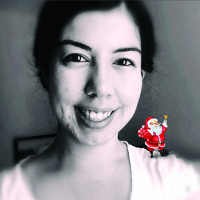
BY MELEK CANSU PETEK (ELIT/III)
petek@ug.bilkent.edu.tr
When I was trying to decide what to do for my senior project, I came up with a few exciting ideas—which made it harder to pick one, because they all had the potential to turn into a fulfilling project. Then I asked myself, “Are you up for a challenge, or would you like to do something slightly easier, a topic that’s been written about before?” Now, I knew that I was simply tricking myself. When someone poses a question of that sort, I always go for the challenge—a habit I’m not necessarily proud of.
The challenging idea I decided to go with was working on dystopian literature. And it was challenging, because I had no idea where to start, though I’d read some dystopian books before. I mean, everyone knows about Orwell’s “Nineteen Eighty-Four,” and books like “The Hunger Games” and “Divergent” have ignited the interest of our generation in the dystopian world. Yet, if you were to ask me what dystopia is, I would have a hard time coming up with an explanation that covers all of its aspects. I’ll still give it a try, though (yes, challenge accepted!).
Now, my beloved Longman dictionary defines it as “an imaginary place where life is extremely difficult and a lot of unfair or immoral things happen,” which is exactly why I think it’s hard to define dystopia. “A lot of unfair or immoral things” doesn’t sound very clear, does it? What you would consider unfair or immoral might be different from what another person would. After serious consideration(!), the best definition I could think of is that dystopia is the opposite of utopia.
Before you start throwing rotten tomatoes at me, let me explain. What I just said is, of course, quite obvious, but nonetheless the most inclusive way of giving a description of dystopia. If you think about it, we all have different ideas of utopia, the perfect world, right? Mine would be living in a library-house in a forest right by the ocean with all the people I love, sitting in my cozy armchair reading, sipping a cup of coffee and eating Andy’s pumpkin pie. And my dystopia would be a place with no books, no coffee, no nature and no pumpkin pie (God save us!).
With that in mind, I started to think that perhaps dystopian novels reflect the fears of their writers to some extent. It makes sense, for instance, that Orwell’s dystopia is a totalitarian system, since he was a democratic socialist. Yet, what interests me even more about dystopian books/movies is that they do more than reflect the fears of their creators; they also project love, and even hope.
When you think about it, many dystopian books and movies function the same way. They start with the idea that we messed up, again, and started destroying ourselves to such an extent that we required to be controlled. Then the control mechanism, which is supposedly for the good of society, turns against itself and starts amassing more and more power. In other words, we try to change our self-destructive nature, and we miserably fail, this time in a more dangerous manner, because the system manages to create the illusion of success. Think about the movie “Equilibrium,” where they tried to control people’s emotions, as those emotions were considered to be the reason why we kept on starting wars, and so controlling them would establish peace. The rulers manage to create a society where everything is unbearably dull and gray, where there is no art, no music and no excitement. It might sound rather exaggerated, but I think this is very applicable to us “non-dystopian” people. It shows that outer control mechanisms are doomed to fail; change needs to be rooted inside people’s hearts/minds. And the best thing is that in most of these books, that change starts with love and compassion.
If you’re rolling your eyes at me, thinking that I’m referring to squishy romantic love, just hold on, because that’s not what I’m talking about. The love that flourishes in a dystopian system is never black or white, or pink for that matter. The characters aren’t each other’s soul mates, because, let’s be honest, there is no such thing as a soul mate. Human beings aren’t capable of perfect love; if we were, we wouldn’t mess it up so badly. However, there is something real in dystopian books. There is betrayal, in every sense, but there is also forgiveness. Characters continually question whether they are in love, but there is still commitment, which makes the whole difference. And there is war, but there are also small acts that show how we are still humans at the core, anchors that hold the world together, and those acts start the change, like when Katniss cares about Rue, when Sean Penn recites lines from Yeats’ “He Wishes for the Cloths of Heaven.” We are far from being perfect, and this earth will never be a place of utopia, but we are creatures who feel love and hope even in the midst of dystopia. And I find that perfectly beautiful.
